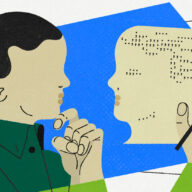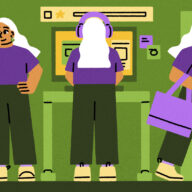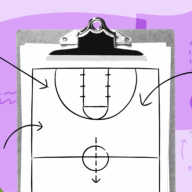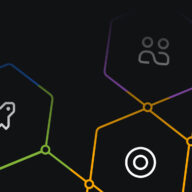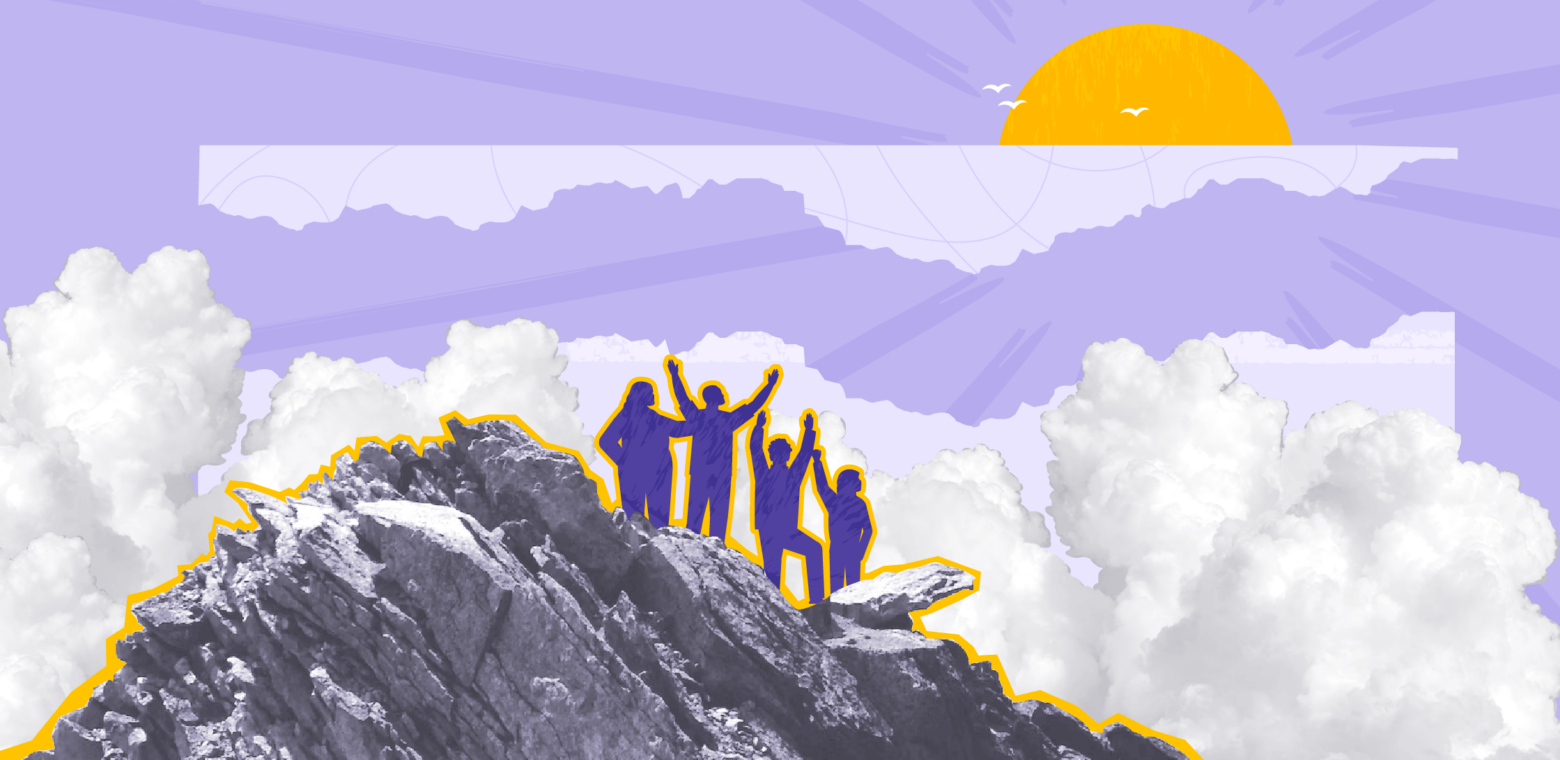“Teamwork makes the dream work”: an origin story
Ever heard this quote? Yeah, us too. But don’t roll your eyes just yet – the book it’s from captures the proven power of collaboration inside and outside of work.
5-second summary
- “Teamwork makes the dream work” feels like one of those age-old quotes that’s been part of our culture (and cheesy office decor) for generations. Turns out, it’s actually from a fairly recent book by the same name, which shares a little slice of teamwork history and fundamental truths that – unlike cliché mantras – don’t get old.
- There’s a science to what makes a dream team. Maxwell also expands the concept of a “team” beyond work and “dream” beyond the traditional idea of success.
- Maxwell and many other researchers, authors, and leaders (including Atlassian) agree: Teamwork is essential to success, and working together delivers real competitive advantages.
Our company believes wholeheartedly in the power of teamwork, and we’re always on the lookout for likeminded folks who feel the same. When we discovered the book Teamwork Makes the Dream Work by John C. Maxwell – originator of that now-ubiquitous inspirational quote – we had to have a look-see.
Was it full of cliché quotes about collaboration? Oh yeah. Inspiring yet somewhat cheesy stories? You know it. But we also love the earnestness with which Maxwell talks about teamwork and dreaming about big goals – two things we’re passionate about too.
From his take on the different types of teams we’re all part of, to his broader definition of dreams, here are the nuggets from the book that fellow fans of teamwork will find most interesting.
Where corporate’s favorite corny quote comes from
“Teamwork makes the dream work” feels like one of those age-old mantras that’s been part of our culture for generations, but it’s actually relatively new.
According to our amateur historiography of the phrase, a version of it made an appearance in the New York Mets’ 1986 World Championship song. Check out this absolute banger that had everyone singing, “We got the teamwork…that makes the dream work!”
Fast forward to 2002, when Maxwell’s leadership book cemented teamwork’s unofficial motto in history – that ever-present (and, yes, maybe a little done-to-death) tagline of collaboration: “Teamwork makes the dream work.” The turn of phrase is plastered on everything from wall decals to coffee mugs to t-shirts to coasters.
We took a gander at the now-20-year-old book, and all snark aside, we appreciate this little slice of teamwork history and the fundamental truths it shares, which – unlike the book’s hallmark quote – never get tired.
What makes a dream team?
Maxwell articulates the intangible characteristics of a great team, and in a sense challenges the concept of a team altogether. When most of us hear the word, we think of work environments, sports, and competitions. But in Teamwork Makes the Dream Work (along with his other book, The 17 Indisputable Laws of Teamwork), Maxwell offers a different perspective.
Bits from the book: teamwork makes the dream work
“Teams come in all shapes and sizes. If you’re married, you and your spouse are a team. If you are employed by an organization, you and your colleagues are a team. If you volunteer your time, you and your fellow workers are a team…Every day in some way, you are part of a team. The question is not, ‘Will you participate in something that involves others?’ The question is, ‘Will your involvement with others be successful?’”
While there are many types of teams, there are a number of generally agreed upon characteristics high-performing teams rely on. In Maxwell’s book, these core traits manifest as “10 C’s”:
- Commitment that inspires results
- Contributions that make a difference
- Competency that raises the standard
- Communication that increases effectiveness
- Cooperation that creates harmony
- Chemistry that enhances personal connection
- Creativity that enlarges the team’s potential
- Conflict management that reduces tension rapidly
- Cohesiveness that allows for rapid change
- Community that makes the journey fun
In our business (and likely in yours too), products and services are never “done.” They’ exist in a continuous improvement cycle – and the same goes for teams. Even if a group embodies every one of those 10 C’s, they should sieze opportunities to foster even stronger connections and boost performance so they can go farther together than any of them could on their own.
Defining the dream
So Maxwell’s idea of teamwork is rooted in that list of C words – where does The Dream come in? In essence, Maxwell is espousing the idea that, beyond professional output or success in the traditional sense, teams should also prioritize bigger, aspirational, dreamier goals and ambitions.
We co-sign on this approach – we set goals in similar ways on our own teams. Beyond defining specific targets to work towards – OKRs and KPIs, for example – defining a BHAG (big, hairy, audacious goal) or higher-level purpose inspires teams to think bigger about the impact they can make. Tons of research, including this study by Deloitte, shows that purpose-driven companies gain more market share, grow faster, and have happier employees and customers.
Maxwell also points out that being part of a team pushes people to dream even bigger than they would solo. “Sometimes you have to sacrifice a small dream of your own in order to accomplish a bigger dream with someone else,” he writes. “It takes a courageous and humble person to make such a decision. But look what can result.”
Dreaming big may seem unrealistic or unproductive when there are immediate needs to address. But defining those pie-in-the-sky dreams not only helps rally the team around a common vision, but also helps determine whether those immediate needs are truly the best way to “make the dream work.”
The power of teamwork
Overall, Maxwell’s findings directly align to a core truth that we embrace today: Effective teamwork is essential to personal and professional success. It gives companies, competitors, and couples a real advantage in several key areas:
Better problem solving
Bits from the book: teamwork makes the dream work
“No problem is insurmountable. With a little courage, teamwork, and determination, a person can overcome anything.”
Science tells us that multiple minds are better than one when solving complex problems. “We found that groups of size three, four, and five outperformed the best individuals,” says Dr. Patrick Laughlin, a researcher at the University of Illinois at Urbana-Champaign. “[We] attribute this performance to the ability of people to work together to generate and adopt correct responses, reject erroneous responses, and effectively process information.”
Opportunities for growth and innovation
Bits from the book: teamwork makes the dream work
“Empowered team members achieve more and help the team to continually improve.”
Some of the most innovative ideas and biggest advancements have happened when disperate people and ideas collide. “Most people think success comes from surrounding yourself with others that are like you,” says Frans Johansson, author of The Medici Effect. “But true success and breakthrough innovation involves discomfort. Discomfort pushes you to grow. This is where difference of experience, opinion, and perspective come in. Diversity is a well-documented pathway to unlocking new opportunities, overcoming new challenges, and gaining new insights.”Research shows innovation can only happen when communication within the team is open and collaborative, notes Ben Wigert, lead researcher for Gallup’s workplace management practice. The most creative solutions surface when team members feel safe enough to ask questions (even if they feel silly), propose unique ideas, and receive constructive feedback.
Happier team members
Bits from the book: teamwork makes the dream work
“[A team] helps you fulfill the desires of your heart.”
Even if Maxwell’s rhetoric feels a bit cheesy, our own research found that team members were 80 percent more likely to report higher emotional well-being when honest feedback, mutual respect, and personal openness were encouraged. In other words, they were markedly happier and more fulfilled when they were part of a healthy team.
Keeping employees happy is not only good for people, but also good for business. Research from the University of Warwick in England suggests happy employees are up to 20 percent more productive than unhappy employees.
Teamwork leads to higher satisfaction in our personal lives too. In fact, a UCLA study shows that couples who have clearly defined responsibilities and agree to share chores are more likely to be happier. (Feel free to quote us next time you remind your partner or roommate to take out the trash.)
Lower risk of burnout
Bits from the book: teamwork makes the dream work
“The bad news is that people don’t have the energy to do more personally at [age] sixty than at twenty. The good news is that if you’re part of a team, you can do more collectively at sixty than you could at twenty.”
If we set the casual ageism aside (our collective thinking about generational differences has changed a lot in the last 20 years!) and acknowledge that anyone can fall victim to burnout, we agree that teamwork is the salve. There are many proven ways to reduce burnout inside and outside of work, including creating a positive and supportive environment, setting clear expectations, alleviating stress where possible, communicating effectively, removing barriers, and, you guessed it, working as a team (remember those 10 C’s?). Gallup found that “When people work together and support one another, the workload gets lighter and challenges seem smaller.”
Higher productivity
Bits from the book: teamwork makes the dream work
“[A team] multiplies your value to others…It allows you to help others do their best.”
A recognition-rich environment, where colleagues acknowledge that multiplied value they get from their teammates, is a direct path to higher productivity. Getting a pat on the back from someone higher up or more experienced can make us feel more motivated, and hearing kudos from our equals or other team members may be even more effective. In the TINYpulse Employee Engagement and Organizational Culture Report, which surveyed more than 200,000 employees, participants reported that having the respect of their peers was the number-one reason they go above and beyond at work.
Smarter risk-taking – and fewer mistakes
Bits from the book: teamwork makes the dream work
“Are you content just to dream it, or are you willing to take the risk and try to live it?”
When we’re on our own, we may be more hesitant to put ourselves out there and pursue our dreams. But when we have the support of a team at work or at home, we know we have people to fall back on in case of failure. That psychological safety typically makes us feel more secure taking risks – and more likely to reap the rewards.
Likewise, when a team feels less frazzled, they make fewer mistakes. That’s worth keeping in mind, especially since 61 percent of people cite work as a significant source of stress.
“Talent wins games, but teamwork and intelligence win championships.”
Life is impossible alone. We need each other. In a culture where hustling is the expectation and ego often takes over, let’s challenge each other to prioritize the “we” over “me.”
This doesn’t mean we have to set aside our own dreams. In fact, it’s often the opposite: By embracing the power of teamwork, we can achieve even bigger dreams together. Maxwell’s quote borrowed from Michael Jordan sums it up best: “One thing I believe to the fullest is that if you think and achieve as a team, the individual accolades will take care of themselves. Talent wins games, but teamwork and intelligence win championships.”
From smashing company goals with colleagues to building a life with a partner, teamwork encourages us to dream – and, yes, helps make that dream work.










